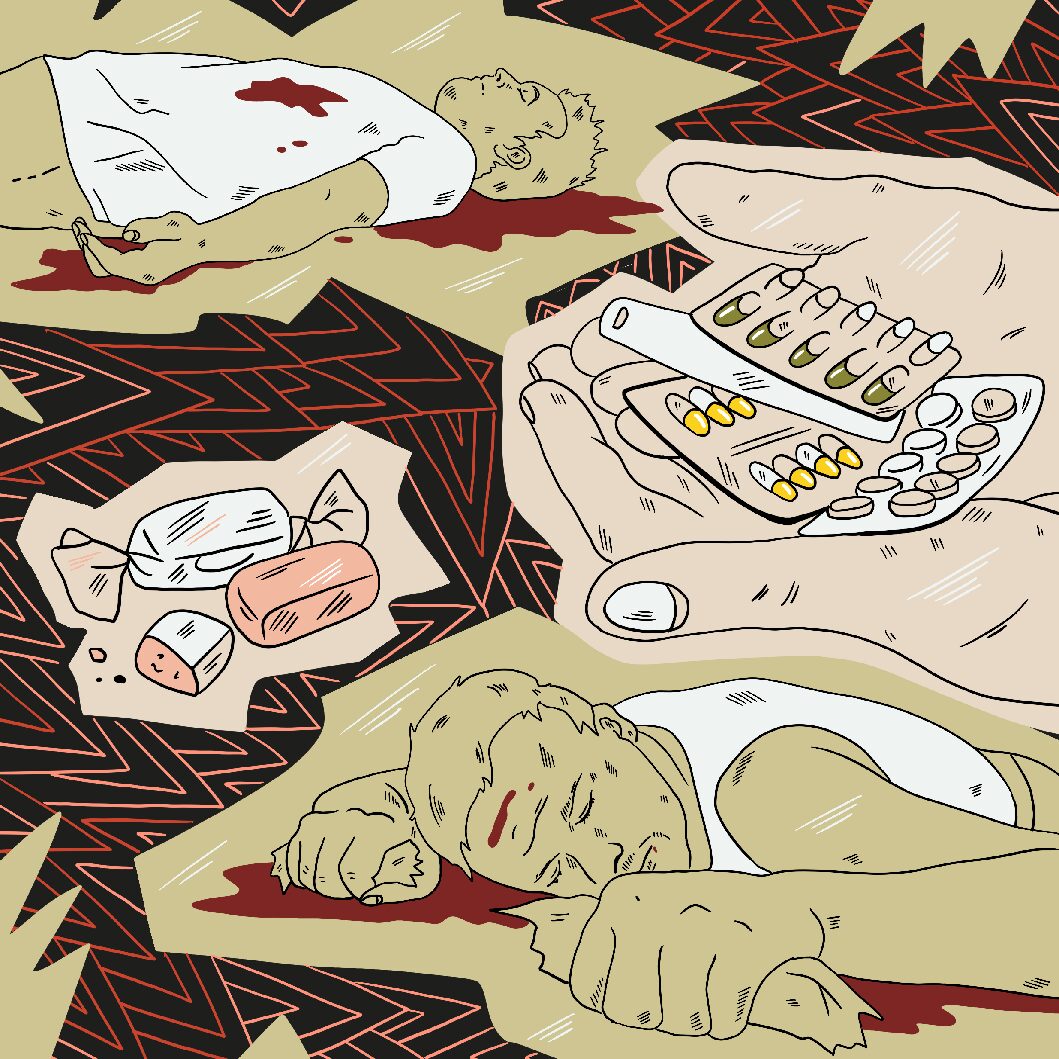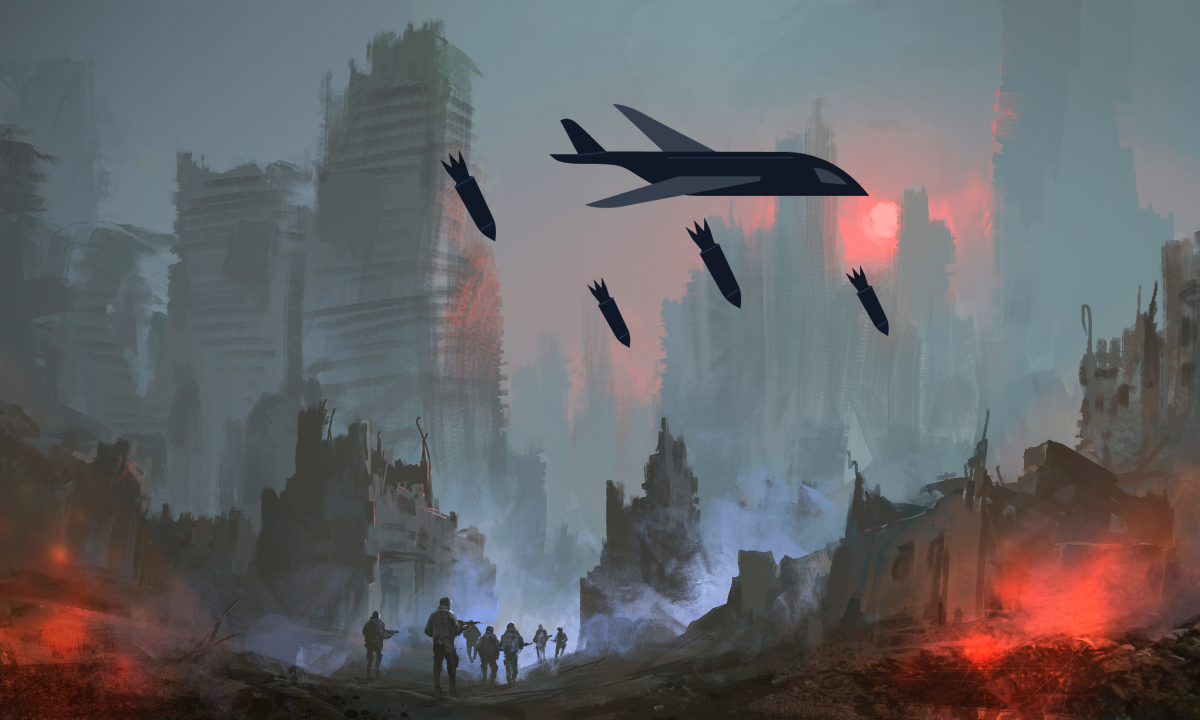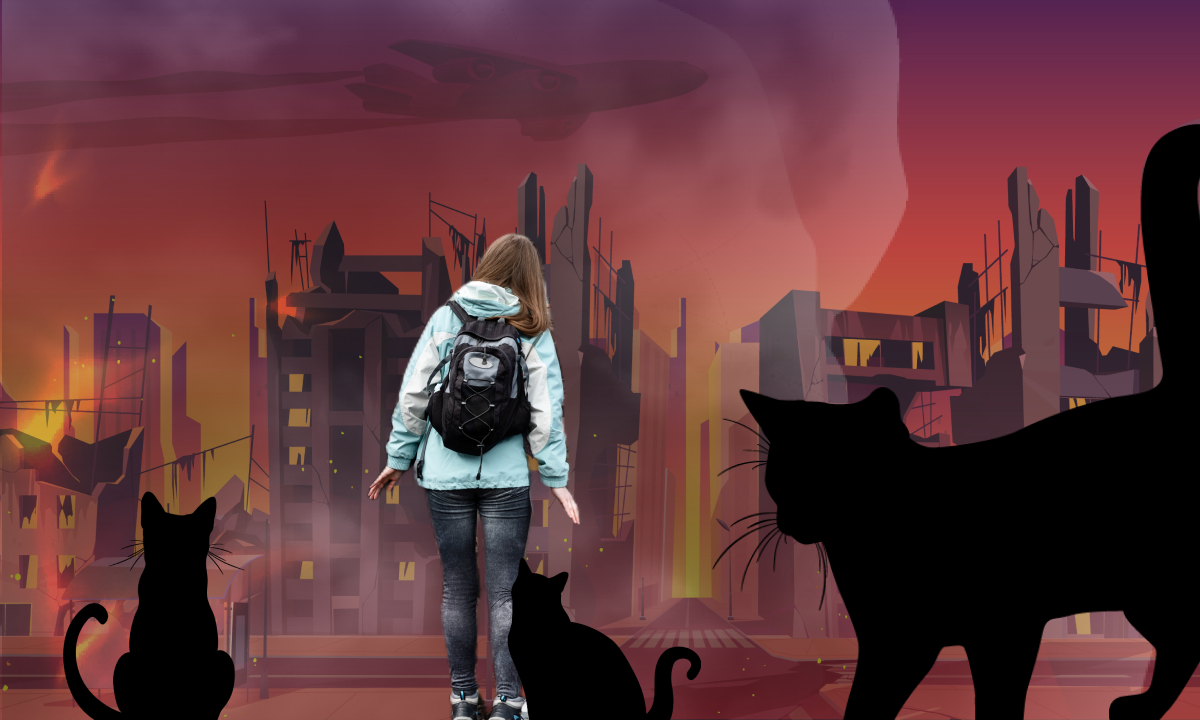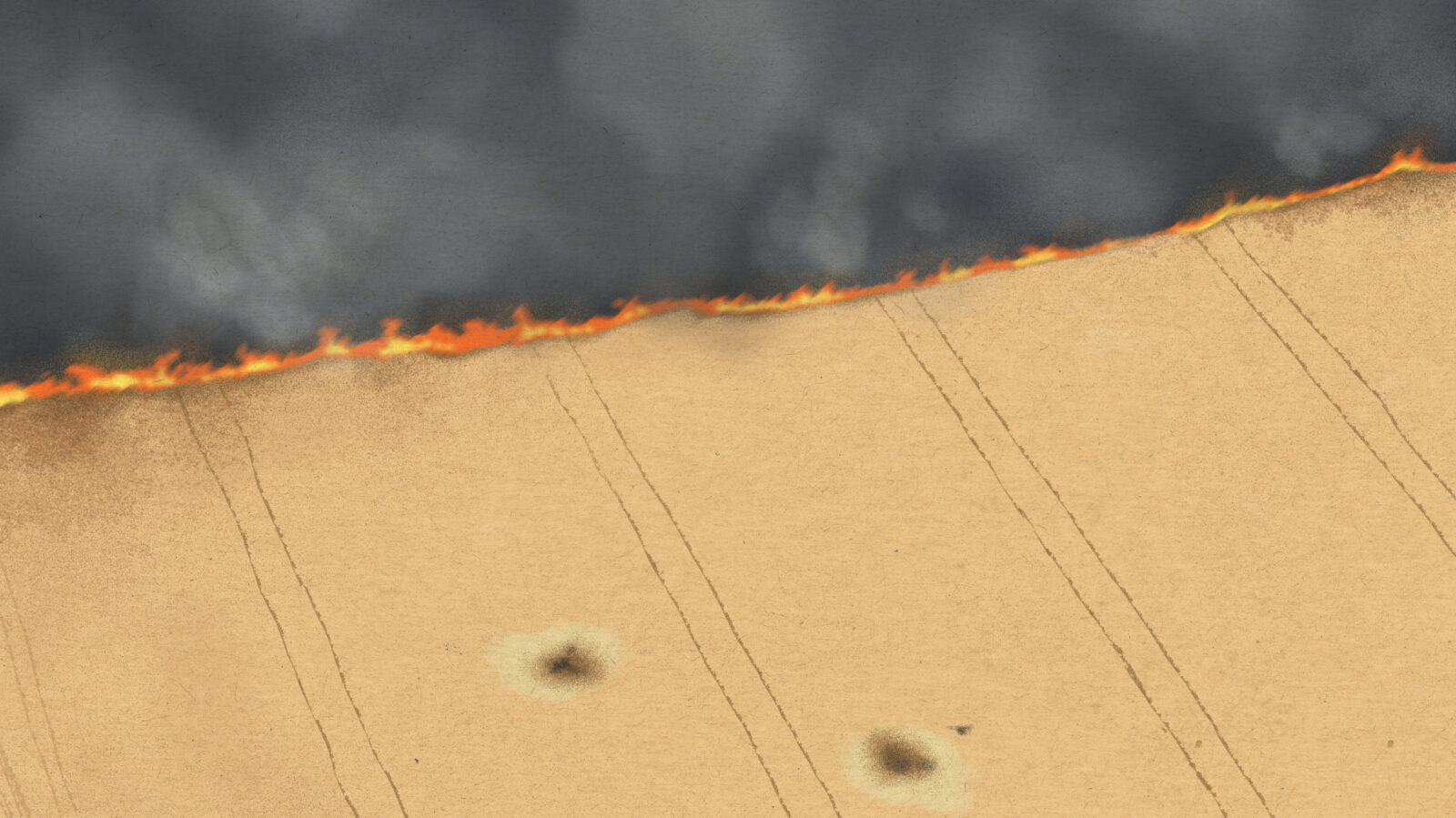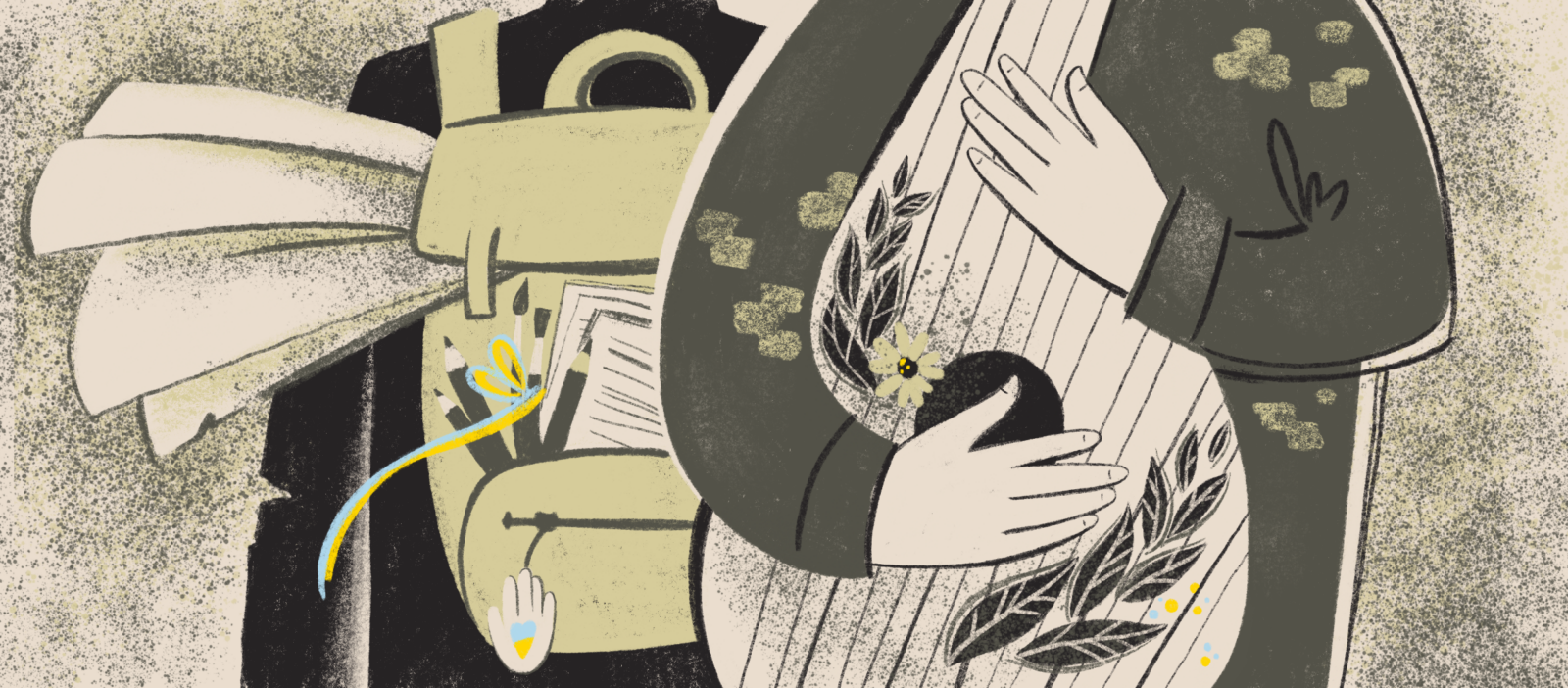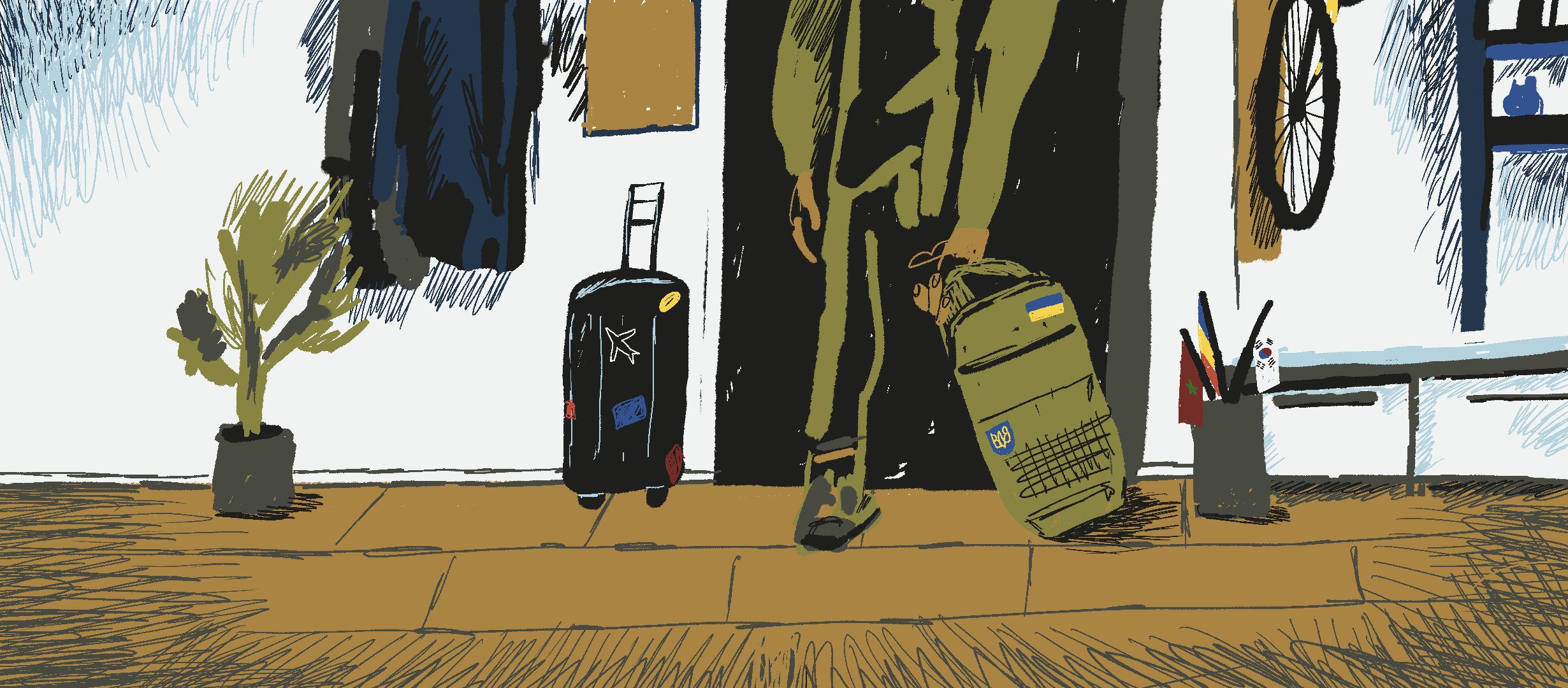Illustrated by Tanya Guschina
“Non-stop shelling from Russian military equipment: numerous tank columns, rocket launch systems. On the first day, at 11 a.m., we saw the news that almost all cities were being bombed, occassionally even Lviv. That was a nightmare,” Stephan recalls. He is a 23-year-old urban planning student at Wroclaw University in Poland. In early February, he came to his native Nova Kakhovka for a vacation. And on February 24, the war came to the city.
The small town of Nova Kakhovka in the South of Ukraine was one of the first to be captured. There’s a hydroelectric power station there which Russians wanted to use to supply water to the Crimea. Occupiers hung the Russian flag in Nova Kakhovka around noon on the very first day of the invasion.
My mom looked into my eyes and said, “Don’t you even think about going outside.” Knowing me, she thought that I would attack the invaders. Of course, I promised her not to go out. I engaged in underground resistance.
Now Stephan coordinates the volunteer headquarters that he and his three friends established on the second day of the war. It unites about 100 volunteers. They are doctors, pharmacists, psychologists, and professionals from many other fields. Priests also help: Russians have issued them passes to move around the city. Some deputies also tried to join to promote themselves, even in the wartime. The volunteers get various requests: some need food or medicines, some need to get to a midwife for childbirth or to a neighboring city for blood transfusions. People from all over the world ask for help. Some ask the volunteers to visit a bedridden granny abandoned by her caretakers, some beg to check in on their mom after not being able to reach her for a long time.
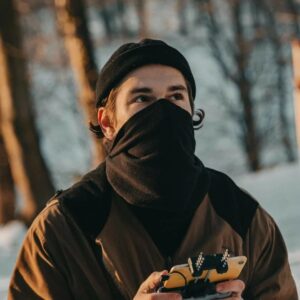
During the 10 days of war, Stephan’s group has raised approximately $13,500, with more than a thousand being spent every day. There’s nowhere to buy the essentials now though: the pharmacies are empty, people need blood pressure medications and antipyretics; the only thing left in the stores are sweets. Humanitarian aid does not reach the city, the Russian military does not let through the cars without passes, and you can only get a pass in the city. It’s a vicious circle.
Locals cannot go to hospitals because Russians keep their wounded there. Stephan says that some dead bodies had been lying in the streets for three days because no one could pick them up. The invaders didn’t allow the locals to bury their dead in the cemetery because Russian military vehicles were stationed in the vicinity. They were afraid that someone would take photos and send them to the Ukrainian army. Once the Russians caught two volunteers and asked where the volunteer warehouses were because they were almost out of food and medicines. The occupiers jam mobile communication and the internet in the city. While we speak, we hear explosions in the background.
“Did you hear that?! There was a bang over there,” Stephan says. “Fuck, it keeps banging.”
He adds that he became angrier. He used to be good-hearted, but now he hates everybody who arranged that.
“It’s hard when my mom’s heart aches and her blood pressure rises. We have so few medicines left. She gets scared even when I go next door. I don’t know if I am scared. Maybe I will spend all my time at a shrink’s after I get back to Wroclaw, but now the only thoughts I have are about surviving, winning and saving as many lives as I can. In fact, no one will do that but ourselves. And these are not some big words. The guys and I understand that what we do now will be in history books.”
The other day, Nova Kakhovka residents took to the streets in a pro-Ukrainian rally. Stephan says that Nova Kakhovka had never been more united.
“There is that optimism, that faith in Ukraine and our army. It drastically changed the way I see my country. I always believed in our people, but now that faith is even stronger. It’s really awesome that people gather to go to rallies without any help from the outside. Everyone now has that power inside them of being Ukrainian.”
After the war ends, Stephan’s dream is to get a degree in urban planning and to come back to Nova Kakhovka to engage in urban planning and public initiative efforts, raise investments, restore and promote Stone Vyshyvankas and other city attractions, and to develop tourism.
“I want peace. I want to write a book about everything that I’ve experienced, about the city under occupation. I wouldn’t wish that on anyone. I want peace and a free Ukraine that will develop without the meddling of our insane neighbor.”

